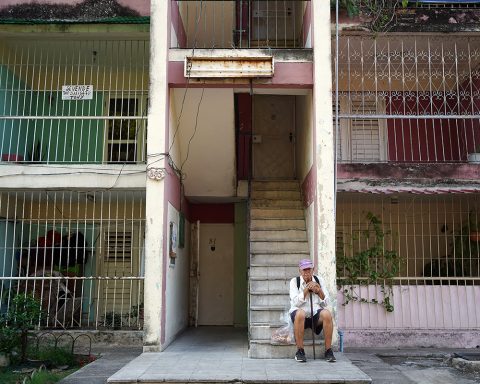At noon yesterday, the presentation of the book “Capitalism is not the problem, it is the solution” by the German historian and author of several best-selling books, was carried out by Agri Terra. During the event he spoke about the success of some countries after opening their markets and how many forget the causes of their success.
Source: The Nation
Rainer Zitelmann, in his book recently translated into Spanish, points out that capitalism is not the problem but the solution and explains that it is demonstrated in a practical way with the experiences of some countries that the number of rich people increased and thus poverty decreased.
In order to exemplify with events that were recorded in the world, he placed China in the middle of the presentation and pointed out that after the opening to capitalism it is successful, and that achievement is summed up in the phrase “let some get rich first” the idea of the economist Deng Xiaopin, who allowed the commercial opening in that country. Zitelmann pointed out that this conception not only applies to China, but also to other countries in the world where it could be shown that the more millionaires there are, the more poverty would decrease significantly. He explained that this conception not only applies to China, but also to the other countries of the world, because the more millionaires there are, the more poverty decreases and in the last 20 years the number of millionaires has gone from 470 to 2,775, it demonstrates in a practical way how while the richer there are, the less poor there are.
He said that on many occasions it is presumed that China’s success is due to the actions that were carried out through the State, but he clarified that in the Asian country’s own gross domestic product (GDP) it is evident that there is a contribution of 60% of the private sector both in innovation, work and security. On that point, he brought up that people forget the reasons for success, which causes a drop in economic freedom, which is quite bad both for China and for the whole world because we all consume products of That country. That same experience is being lived, according to the historian, in Chile, because after being positioned as the most prosperous country, the votes came in favor of the socialists, which is producing a fall in that sense.
“Basically there are two economic systems, socialism and capitalism. Socialism is where nobody owns anything, there is no private property, everything belongs to the State. And capitalism is where freedom is, free wealth, where everyone can generate wealth from it, ”he pointed out. He explained that the dynamic relationship that exists between these two options is based on the amount of intervention that must be generated from both the State and the market, since it assumes that “when you put more market into it, you achieve success like China” while when there is an increase of “State” other results are observed.
He argued that the same experience was lived with Venezuela, which maintained a fairly high growth towards 1970, but had a fall after they began to move towards socialism. “A few days ago we were in Corrientes, we went through the Paraná River and they are full of ships that trade, but basically they were all from Paraguay, which is good for you, but it reveals how the excess of regulations in Argentina creates a more closed economy”, revealed.

















